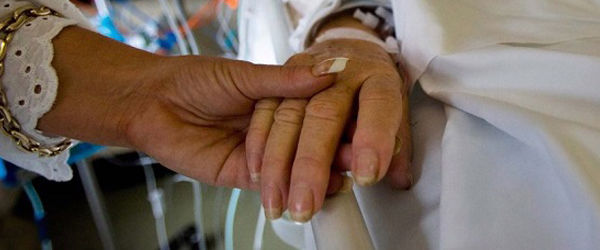Earlier this month, I had the privilege to address an important symposium on crime and punishment in California, hosted by the California Catholic Conference at Loyola Marymount University. More than 500 people came together to consider new approaches based on the idea of “restorative justice.” I’ve been reflecting these past weeks on the complicated issues of how we can control crime and keep people safe — but also how we can offer those who break our laws a chance to redeem themselves and be restored to their families and society. And that we need to acknowledge the pain, loss and sadness of the victims of crime. All too often these victims include young children, taken violently from their families. Part of our problem today is that as a people we are sick of crime. We are outraged by the violence and disregard for human life we see in our society. This is understandable. Our Catholic faith gives us light and leads us to a better understanding of this human reality of our society, especially regarding the importance of healing and restorative justice. We remember, of course, that Jesus Christ was imprisoned and suffered the death penalty. And he told us that we would be judged, in part, on the compassion we show to the prisoner. In fact, Jesus went further. He said the mercy we show to criminals reflects our love for him: “I was in prison and you visited me. … As you did it to one of the least of these my brethren, you did it to me” (Matthew 25: 36, 40). Our Catholic tradition leads us to try to balance justice and mercy in dealing with those who break society’s laws. For us, punishment must be more than making criminals “pay” for their crimes. Punishment should protect society, defend the public order, and restore harmony in the social relationships disrupted by crimes. But our punishments must also be “medicinal.” Our punishments must contribute to the moral correction and education of criminals. We must seek to “restore” them as productive members of society. Our archdiocesan Office of Restorative Justice oversees many projects that reflect this Catholic understanding of crime and punishment.
Our Catholic tradition leads us to try to balance justice and mercy in dealing with those who break society’s laws. For us, punishment must be more than making criminals “pay” for their crimes.
Through this office, we provide chaplains to the many correctional facilities located within the Archdiocese. We offer spiritual support and healing for crime victims and their families. We minister to men and women in jail. We offer spiritual assistance to their families — especially to the many children who have parents who are in prison. This work of “restorative justice” is vital to the Church’s mission of creating a city of love and truth and a culture of peace and reconciliation. It’s not easy to love those who commit violence and other crimes. But Jesus calls us to love our enemies. That includes those who make themselves our enemies by threatening our safety and the decency and common good of our society. So as we pray for one another this week, let’s ask for the grace to remember that those who break our laws are still children of God. This doesn’t mean that we forget their crimes — or their victims. It does mean that we treat criminals with dignity and respect their rights. Loving the guilty means we can never give up on them. We need to always be seeking the conversion and repentance of criminals and those already behind bars. We need to get these people to take responsibility for their actions and to make restitution. But we also need to get them to change their lives — so they can live with the dignity and purpose for which God made them. We know from the New Testament that God’s grace can turn even a murderous persecutor of the Church like St. Paul into the greatest saint and apostle. So let’s work to build a culture where our justice is always tempered by our mercy — and by our hope for the redemption of sinners. And let’s pray in a very special way for the victims of violent crimes and their families, so that through the healing grace of God, they may have the strength to endure their pain, and at the same time, find forgiveness and peace of heart. Let’s ask our Blessed Mother, the Mother of Mercy, to help us strive to build a society that reflects the justice and love of her Son Follow Archbishop Gomez at: www.facebook.com/ArchbishopGomez.
{gallery width=100 height=100}gallery/2012/0824/gomezcol/{/gallery}

